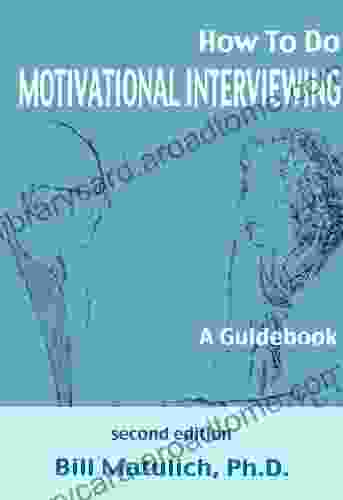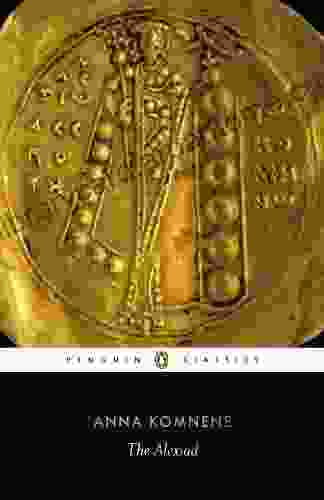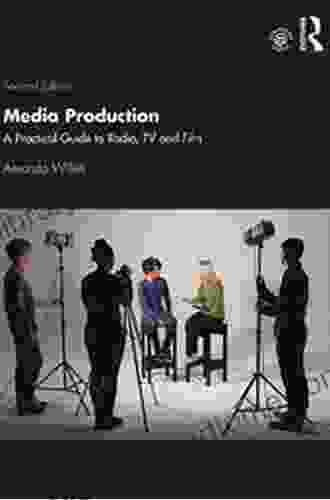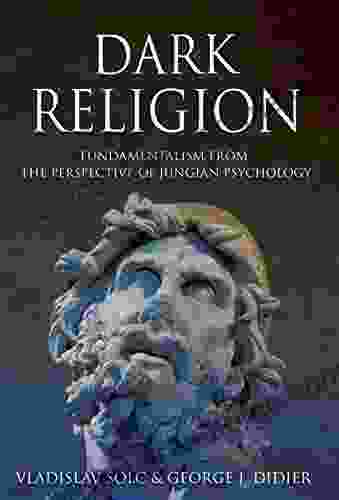Fundamentalism From The Perspective Of Jungian Psychology: Exposing the Unconscious Forces Behind Religious Extremism

Fundamentalism, a phenomenon that has plagued societies throughout history, is a complex and multifaceted issue. While often attributed to external factors such as political or socioeconomic conditions, Jungian psychology offers a profound understanding of the unconscious forces that shape its insidious grip. This article delves into the Jungian perspective on fundamentalism, illuminating the hidden dynamics that fuel this dangerous ideology.
According to Carl Jung, the "shadow" is the repressed and unconscious aspects of our psyche that contain both our primitive instincts and our spiritual potential. When the shadow remains unacknowledged and integrated, it can manifest as aggression, intolerance, and a desire for control.
4.7 out of 5
| Language | : | English |
| File size | : | 4376 KB |
| Text-to-Speech | : | Enabled |
| Screen Reader | : | Supported |
| Enhanced typesetting | : | Enabled |
| Word Wise | : | Enabled |
| Print length | : | 457 pages |
| Lending | : | Enabled |
Fundamentalism thrives on the shadow's projection onto others. By casting out those deemed different or threatening, fundamentalists bolster their own sense of righteousness and superiority. The "other" becomes a repository for their repressed fears and impulses, providing a convenient scapegoat for their own shortcomings.
Jung's concept of the collective unconscious suggests that all humans share a reservoir of inherited memories, symbols, and archetypes that shape our individual and collective experience. These archetypes, including the "great mother," "hero," and "demon," can influence the formation of fundamentalist beliefs.
In fundamentalist movements, the "great mother" archetype often manifests as a patriarchal authority figure who provides a sense of security and belonging. The "hero" archetype may be embodied by a charismatic leader who inspires followers to fight against perceived threats to their faith. Conversely, the "demon" archetype represents the evil or destructive forces that must be vanquished.
individuation is a lifelong journey of self-discovery and integration. Through this process, individuals confront their shadow, reconcile their conflicting aspects, and achieve a more balanced and authentic self.
Fundamentalism, however, inhibits individuation by enforcing rigid beliefs and suppressing dissent. The individual's connection to their true self becomes distorted, replaced by an artificial sense of identity based on adherence to dogma.
The archetype of the wise old man represents wisdom, guidance, and the integration of the shadow. In societies where fundamentalism flourishes, this archetype may be absent or discredited.
In its place, the shadow of the trickster emerges, a figure who manipulates others through deceit and manipulation. This shadow embodies the repressed desires for power, control, and the illusion of certainty that fundamentalism offers.
Numerous case studies and historical examples illustrate the Jungian perspective on fundamentalism. From the Christian fundamentalism of the American South to the Islamic extremism of the Middle East, the patterns of projection, repression, and the inhibition of individuation are evident.
Understanding the unconscious forces behind fundamentalism is crucial for developing effective interventions. These could include:
- Promoting psychological resilience: Individuals need to develop a strong sense of self and purpose, based on their own values and experiences, rather than blind adherence to authority.
- Fostering critical thinking and empathy: Encouraging individuals to question and analyze beliefs, while developing compassion for those who hold different views.
- Challenging the projection of the shadow: Identifying and confronting the shadow aspects of fundamentalism, such as intolerance, aggression, and the desire for control.
- Supporting individuation: Creating safe spaces where individuals can engage in self-reflection, explore their inner world, and integrate their conflicting aspects.
Jungian psychology provides invaluable insights into the unconscious forces that underlie fundamentalism. By understanding the role of the shadow, the collective unconscious, and the inhibition of individuation, we can develop more effective strategies for combating this dangerous ideology.
Through the journey of individuation, we can move beyond the polarizing forces of fundamentalism and embrace our own unique and authentic selves. Only then can we create societies built on respect, compassion, and the pursuit of genuine human connection.
Additional Resources:
- Jungian Psychology and the Problem of Fundamentalism
- The Archetypal Patterns in Fundamentalism
- The Shadow and Fundamentalism
4.7 out of 5
| Language | : | English |
| File size | : | 4376 KB |
| Text-to-Speech | : | Enabled |
| Screen Reader | : | Supported |
| Enhanced typesetting | : | Enabled |
| Word Wise | : | Enabled |
| Print length | : | 457 pages |
| Lending | : | Enabled |
Do you want to contribute by writing guest posts on this blog?
Please contact us and send us a resume of previous articles that you have written.
 Book
Book Novel
Novel Page
Page Chapter
Chapter Text
Text Story
Story Genre
Genre Reader
Reader Library
Library Paperback
Paperback E-book
E-book Magazine
Magazine Newspaper
Newspaper Paragraph
Paragraph Sentence
Sentence Bookmark
Bookmark Shelf
Shelf Glossary
Glossary Bibliography
Bibliography Foreword
Foreword Preface
Preface Synopsis
Synopsis Annotation
Annotation Footnote
Footnote Manuscript
Manuscript Scroll
Scroll Codex
Codex Tome
Tome Bestseller
Bestseller Classics
Classics Library card
Library card Narrative
Narrative Biography
Biography Autobiography
Autobiography Memoir
Memoir Reference
Reference Encyclopedia
Encyclopedia Lynne Hugo
Lynne Hugo Alvin Silverstein
Alvin Silverstein Margaret Shepherd
Margaret Shepherd Alex Clark
Alex Clark Taylor Morton
Taylor Morton Scott Barry Kaufman
Scott Barry Kaufman Alan Keightley
Alan Keightley Charles Musselwhite
Charles Musselwhite Merlin Donald
Merlin Donald Ashoke K Talapatra
Ashoke K Talapatra Alexandria Hook
Alexandria Hook Stacey Crew
Stacey Crew Alex Prud Homme
Alex Prud Homme Glynis Scrivens
Glynis Scrivens Samit Basu
Samit Basu Alexandra Bregman
Alexandra Bregman Dan Neuffer
Dan Neuffer Alexandre Pires Vieira
Alexandre Pires Vieira Allan Kardec
Allan Kardec Alan Watts
Alan Watts
Light bulbAdvertise smarter! Our strategic ad space ensures maximum exposure. Reserve your spot today!

 Russell MitchellMaximize Your Balance, Flexibility, and Core Strength in Your 50s, 60s, and...
Russell MitchellMaximize Your Balance, Flexibility, and Core Strength in Your 50s, 60s, and...
 Aldous HuxleyHow to Do Motivational Interviewing: The Ultimate Guidebook for Inspiring...
Aldous HuxleyHow to Do Motivational Interviewing: The Ultimate Guidebook for Inspiring... Mario SimmonsFollow ·4.1k
Mario SimmonsFollow ·4.1k Harrison BlairFollow ·7.3k
Harrison BlairFollow ·7.3k Paul ReedFollow ·2.2k
Paul ReedFollow ·2.2k David MitchellFollow ·4.3k
David MitchellFollow ·4.3k Abe MitchellFollow ·5.6k
Abe MitchellFollow ·5.6k Steve CarterFollow ·10k
Steve CarterFollow ·10k Eddie PowellFollow ·6.9k
Eddie PowellFollow ·6.9k Trevor BellFollow ·16.9k
Trevor BellFollow ·16.9k

 Joshua Reed
Joshua ReedBelieving, Living, and Enjoying by the Word: Unlock the...
In a world filled with...

 Cason Cox
Cason CoxUnveil the Extraordinary World of "The Alexiad": A...
Delve into the Heart of Byzantine...

 Junot Díaz
Junot DíazUnveiling the Intricacies of Intellectual Property: Your...
In today's knowledge-driven economy,...

 Aleksandr Pushkin
Aleksandr PushkinThe Life of Louise Mathew Gregory: A Tapestry of Triumphs...
A Woman of Extraordinary Substance Louise...

 Leon Foster
Leon FosterHomemade Lotion For Beginners: Transform Your Skincare...
Step into the world of...

 Terence Nelson
Terence NelsonUnveiling the Secrets of Radio, Television, and Film: An...
: Embarking on a Journey into the...
4.7 out of 5
| Language | : | English |
| File size | : | 4376 KB |
| Text-to-Speech | : | Enabled |
| Screen Reader | : | Supported |
| Enhanced typesetting | : | Enabled |
| Word Wise | : | Enabled |
| Print length | : | 457 pages |
| Lending | : | Enabled |








